ZELENSKY LOOKS LIKE A PART OF THIS JIGSAW PUZZLE -HOW TO MAKE GERMANY GREAT AGAIN
ZELENSKY LOOKS LIKE A PART OF THIS JIGSAW PUZZLE -HOW TO MAKE GERMANY GREAT AGAIN -BY AN AMERICAN PRESIDENT OF GERMAN ORIGIN AND WHO TALKS ALL THE TIME OF HOW TO MAKE AMERICA GREAT AGAIN WHILE SAYING WILL NOT SUPPORT NATO --BOTH DURING FIRST PRESIDENCY AND NOW DURING SECOND PRESIDENCY--,ONE WHO HAD CLOSE FRIENDS SUCH AS BOLTON DURING FIRST PRESIDENCY -BOLTON AS EVERYBODY KNOWS IS FASCIST---ZELENSKY IS A FASCIST---- TRUMP WHEN HE TALKS OF SUPPORTING AFD (FASCIST) PARTY IN GERMANY-LOOKS CRYPTO FASCIST -THIS LOOKS LIKE A FASCIST PUTCH -PLAN TO MAKE GERMANY CENTRE POINT IN EUROPE AS LEADER OF HELPLESS EUROPEAN NATIONS -THIS SCENARIO OF A RESURGENT GERMANY UNDER A FASCIST(NAZI) PARTY OF AFD WITH THE SUPPORT OF OTHER FASCISTS IS NOW COMING TRUE-THIS WAS THE WISH OF HITLER TO MAKE GERMANY GREAT .TO ME IT LOOKS LIKE AFTER PUTIN'S RULE IS OVER EVEN RUSSIA,UKRAINE.BELARUS WILL JOIN NATO -WHICH WILL MAKE GERMANY MORE POWERFUL THAN USA -
IN A WORLD WHERE OTHER OPPONENT WILL BE CHINA
AND TO A VERY MINOR EXTENT INDIA, DEPENDING ON WHO IS RULING PARTY
Zelenskyy calls for European army as Germany hits back at US over Vance tirade – Europe live
‘Our army alone is not enough, we need your support,’ Ukraine’s president tells Munich security conference
Sat 15 Feb 2025 17.23 GMT
Live feed
Zelenskyy: the time has come for a European army
Addressing the Munich Security Conference on Saturday, Ukrainian president Volodymyr Zelenskyy said the “time has come for a European army to be created”.
Zelenskyy said that North Korean troops fighting Ukraine are learning “modern warfare”.
“Our army alone is not enough, we need your support,” he said.
- Summary of the day so far
- US and Ukraine should deepen partnership, says UK foreign minister
- Nato members have to increase defence spending despite domestic political concerns, says Rutte
- Analysis: Vance speech was call to arms for the populist right to seize power in Europe
- JD Vance decried as extremist over attack on UK abortion clinic safe zones
- Europe needs its own plan for security and Ukraine, says Poland's Tusk
- 'No decisions' on Ukraine without Kyiv and Europe, says Zelenskyy
- Zelenskyy: Ukraine will never accept 'deals reached behind our backs'
- Zelenskyy: the time has come for a European army
- Ukraine peace only possible if 'sovereignty secured', says Scholz
- German chancellor hits back at US at security conference
- Munich Security Conference: Saturday's speakers
- JD Vance stuns Munich conference with blistering attack on Europe’s leaders
- Opening summary
Finnish president Alexander Stubb told Reuters on Saturday that the US had sent a questionnaire to European countries asking them what they could do to provide security guarantees for Europe.
Speaking at the Munich Security Conference, Stubb said:
“The Americans have provided Europeans with the questionnaire on what would be possible.”
He went on to add:
“This will force Europeans to think, then it’s up to the Europeans to decide whether they actually answer the questionnaire, or whether they answer it together.”
Senior officials from the US and Russia are meeting next week in Saudi Arabia to pave the way for a potential leaders’ summit as soon as the end of the month to discuss ending the war in Ukraine, according to people familiar with the matter, Reuters reports.
On Saturday, Donald Trump’s special envoy for Ukraine Keith Kellogg said that Europe will be consulted – but ultimately excluded – from peace talks between Russia, Ukraine and the US.
Upon being asked whether Europe would be at the peace talks, Kellogg said that he was from “the school of realism and that is not going to happen.”
Kellogg added: “And to my European friends, I would say: get into the debate, not by complaining that you might, yes or no, be at the table, but by coming up with concrete proposals, ideas, ramp up [defence] spending.”
Russian president Vladimir Putin would not dare to attack a Nato country, Nato secretary-general Mark Rutte said on Saturday at the Munich Security Council.
He added that Moscow would face the “full onslaught” of the alliance if Putin chooses to launch an attack, Reuters reports.
The US sent a diplomatic demarche to European capitals asking them what they could contribute in terms of security guarantees for Ukraine, four European sources told Reuters on Saturday.
According to the sources, a document was sent asking questions that include possible future contributions.
One European diplomat who is aware of the document said: “The idea is evidently to see how European allies see the possible framework for negotiations to put an end to the conflict, and the possible engagement of Europe and the United States.”
One diplomat said that the document includes six questions with one specifically for EU member states.
Summary of the day so far
It is approaching 5pm in Munich where the Munich Security Conference is in its second day. Here are today’s key updates related to the event:
German chancellor Olaf Scholz has shot back strongly in defence of his stance against the far-right and said his country will not accept people who “intervene in our democracy,” a day after US vice-president JD Vance scolded European leaders over their approach to democracy. Scholz said:“Free speech in Europe means that you are not attacking others in ways that are against legislation and laws we have in our country.”
Scholz said on Saturday that the war between Ukraine and Russia would only truly end with peace if Ukrainian sovereignty is secured. “We will also not accept any solution that leads to a decoupling of European and American security. Only one person would benefit from this: President Putin,” he added.
The Ukrainian president, Volodymyr Zelenskyy, told the Munich Security Conference on Saturday that the time has come for a European army to be created. “Our army alone is not enough, we need your support,” he said, adding that the “old days” when the US supported Europe “just because it always had” are over. He also told leaders and officials that he would not take Nato membership for Ukraine off the table and insisted that no decisions should be taken on ending Russia’s war without Kyiv and Europe.
UK foreign minister David Lammy said on Saturday he would encourage US president Donald Trump and Zelenskyy to deepen their partnership in the future. Speaking at the Munich Security Conference, Lammy said the best security guarantee for Ukraine against future Russian aggression was binding US industry, business and defence capability into its future.
Nato secretary general Mark Rutte said on Saturday that “Russia is on a war economy. We are not” at the Munich Security Conference. Additionally, Rutte said Nato’s members would have to increase defence spending despite domestic political concerns. The alliance currently calls on members to spend at least 2% of gross domestic product on defence, but Rutte believes a shift to focusing on the capabilities required by Nato will see that rise to more than 3%.
Europe will need to make tough choices and sacrifices in order to deal with the threats facing it and to ensure its security, said French foreign minister Jean-Noël Barrot on Saturday. “We need to prepare. We will have to face difficult days, make complicated decisions and even sacrifices which we weren’t expecting until now to ensure this security,” said Barrot, speaking to reporters at Munich Security Conference. Barrot, also on Saturday, defended European policies after a withering attack by US vice-president JD Vance the day before regarding immigration, populist parties and free speech. “Freedom of expression is guaranteed in Europe … Nobody is obliged to adopt our model, but nobody can impose theirs on us,” the French minister wrote on X.
Rutte also told the conference in Munich that Trump was right to argue for European nations to do more to pay for security on the continent. Rutte said: “It is simply not fair if European Nato countries are paying less for their collective defence than the US is paying for that, because the US would also like to lower its taxes or to spend more on education or whatever you want to spend it on.”
Poland’s foreign minister Radosław Sikorski said on Saturday that the US’ “credibility” as an ally depended on the outcome of the Ukraine war, after Trump took up direct talks with Russian president Vladimir Putin. “The credibility of the United States depends on how this war ends. Not just the Trump administration, the United States itself,” Sikorski said at the Munich Security Conference.
Amid angry European reactions to JD Vance’s combative speech in Munich, Switzerland’s president said on Saturday she shared many of the “liberal values” he expressed, seeing the speech as a “plea for direct democracy”. In an interview with the Le Temps daily published on Saturday, she said that “in a certain sense, (the speech) was very Swiss in its call to listen to the population”. Keller-Sutter also played down concerns over US efforts to broker a Ukraine truce deal with Moscow.
German conservative opposition leader Friedrich Merz on Saturday joined his domestic political rivals in condemning Vance’s attack on Europe’s stance toward hate speech and the far right. “We stick to the rules imposed by our democratic institutions,” Merz said in a panel discussion at the Munich Security Conference.
Europe needs its own plan for Ukraine and for its own security or its future will be decided by other powers, Polish prime minister Donald Tusk said on Saturday. “Europe urgently needs its own plan of action concerning Ukraine and our security, or else other global players will decide about our future. Not necessarily in line with our own interest,” Tusk wrote on X.
Poland’s foreign minister Radosław Sikorski said on Saturday that the United States’ “credibility” as an ally depended on the outcome of the Ukraine war, after president Donald Trump took up direct talks with Russian president Vladimir Putin.
“The credibility of the United States depends on how this war ends. Not just the Trump administration, the United States itself,” Sikorski said at the Munich Security Conference, reports Reuters.
US and Ukraine should deepen partnership, says UK foreign minister
UK foreign minister David Lammy said on Saturday he would encourage US president Donald Trump and Ukrainian president Volodymyr Zelenskyy to deepen their partnership in the future.
“I would encourage Donald Trump and the Ukrainians to look very carefully at a deepening partnership over the next generations,” Lammy said at the Munich Security Conference, reports Reuters.
The UK and Ukraine signed a landmark 100-year partnership agreement last month to deepen security ties and strengthen their countries’ relationship.
Lammy said the best security guarantee for Ukraine against future Russian aggression was binding US industry, business and defence capability into its future. “That is what will make Putin sit up and pay attention, and that is what’s attractive to a US president who knows how to get a good deal,” Lammy added.
Outside the Munich Security Conference, there have been crowds of protesters holding placards and chanting slogans. Here are some images coming in via the newswires:
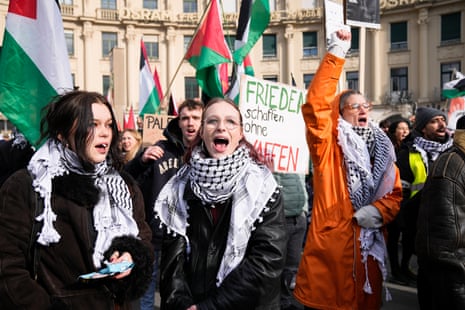
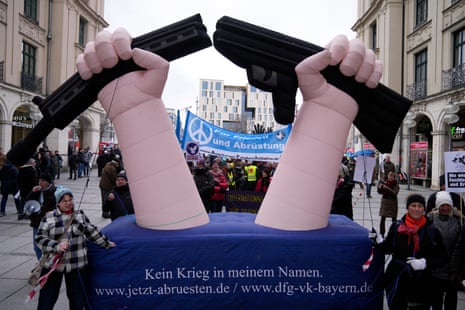
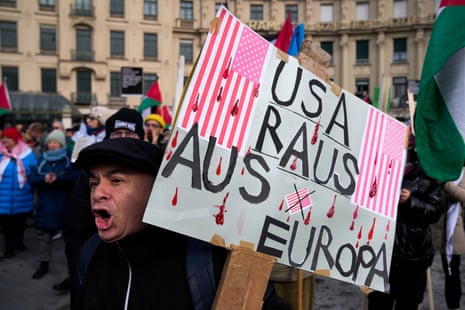
Here are some more images from the Munich Security Conference coming in via the newswires today:
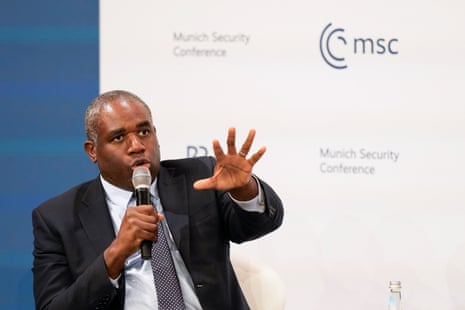
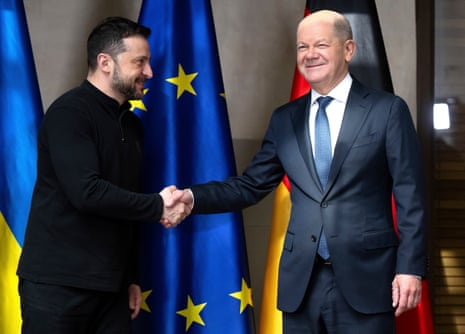
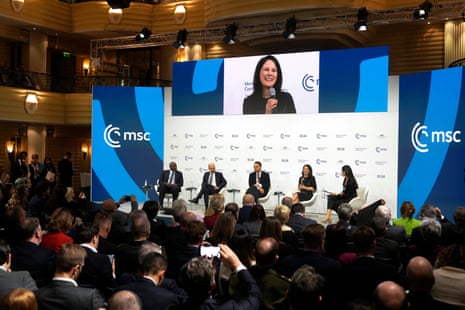
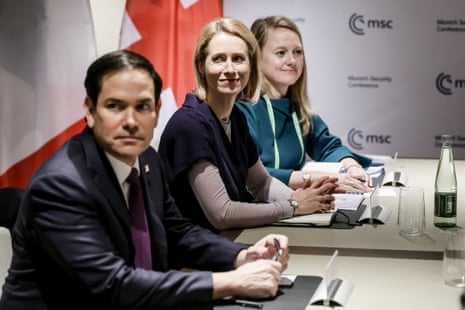
Europe will need to make tough choices and sacrifices in order to deal with the threats facing it and to ensure its security, said French foreign minister Jean-Noël Barrot on Saturday at the Munich Security Conference.
“We need to prepare. We will have to face difficult days, make complicated decisions and even sacrifices which we weren’t expecting until now to ensure this security,” said Barrot, speaking to reporters at the event, according to Reuters.
Barrot also said he thought that, after he had held talks with US secretary of state Marco Rubio, that the US administration was still forming its opinion over how the US should handle the Ukraine crisis.
Nato members have to increase defence spending despite domestic political concerns, says Rutte
Nato secretary general Mark Rutte said on Saturday that “Russia is on a war economy. We are not” at the Munich Security Conference (MSC).
In remarks later published on the offical MSC X account, Rutte was quoted as saying:
Russia is on a war economy. We are not. We have to do this and cut the red tape and to our American friends it is also good business because the European allies spend four times more in the US than the US is spending in Europe.”
Additionally, Rutte said Nato’s members would have to increase defence spending despite domestic political concerns. The alliance currently calls on members to spend at least 2% of gross domestic product on defence, but Rutte believes a shift to focusing on the capabilities required by Nato will see that rise to more than 3%.
According to the PA news agency, Rutte told the conference in Munich that US president Donald Trump was right to argue for European nations to do more to pay for security on the continent. Rutte said:
It is simply not fair if European Nato countries are paying less for their collective defence than the US is paying for that, because the US would also like to lower its taxes or to spend more on education or whatever you want to spend it on.
The argument cannot be that we are so poor here – we are the richest part of the world, the money is there. That cannot be the problem.”
There would have to be “difficult decisions” taken by European states but sticking to 2% would not be enough, he added. The new Nato process to assess what gaps in defence capabilities need to be filled “will lead you to a number which is much, much more than 2%”, with the new targets due to be set out within months, said Rutte.
Rutte suggested annual increases of 0.2 to 0.3 percentage points a year could be how the target was set to “get there fast” but in a credible way.
For the second half of the Munich Security Conference (MSC) on Saturday, the focus will be on “global tensions with regional impact”, according to the official line from the MSC.
There are a number of panel discussions scheduled with foreign ministers, according to the conference agenda, so we can expect to hear from the likes of the UK’s foreign secretary, David Lammy, Germany’s foreign minister, Annalena Baerbock, and Canada’s minister of foreign affairs, Mélanie Joly, among others.
In JD Vance’s confrontational and pugnacious speech at the Munich Security Conference, the vice-president ran through a series of examples to highlight his claims that Europe has gone off the rails.
My colleagues, Daniel Boffey and Alexandra Topping lhave taken a ook at what he said – and whether it stacks up – in this explainer piece:
Most viewed
................................................................................................................................................
|
SEE WHAT I PREDICTED IS COMING TRUE
SEE WHAT I PREDICTED IS COMING TRUE
Germany is going to be no 1 power
2ND CHINA
3RD AMERICA 4TH INDIA-IN 2100
mm
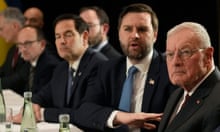
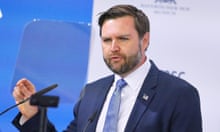
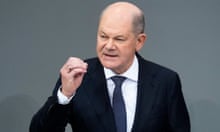
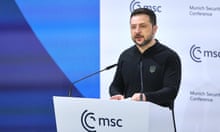
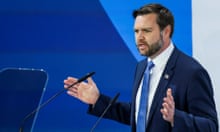
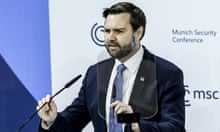

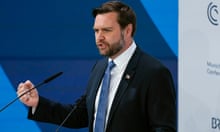




Comments
Post a Comment